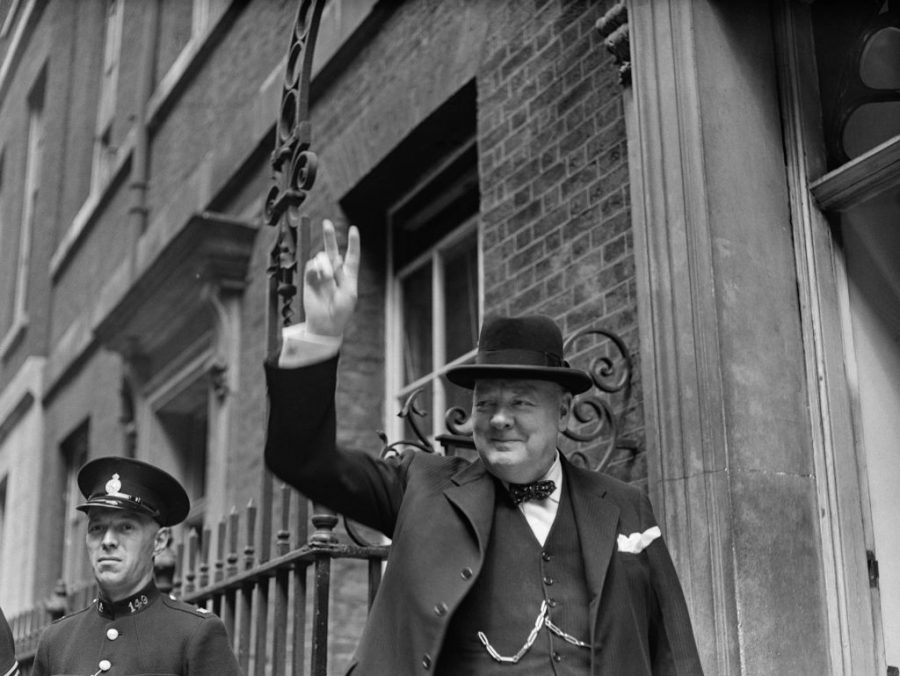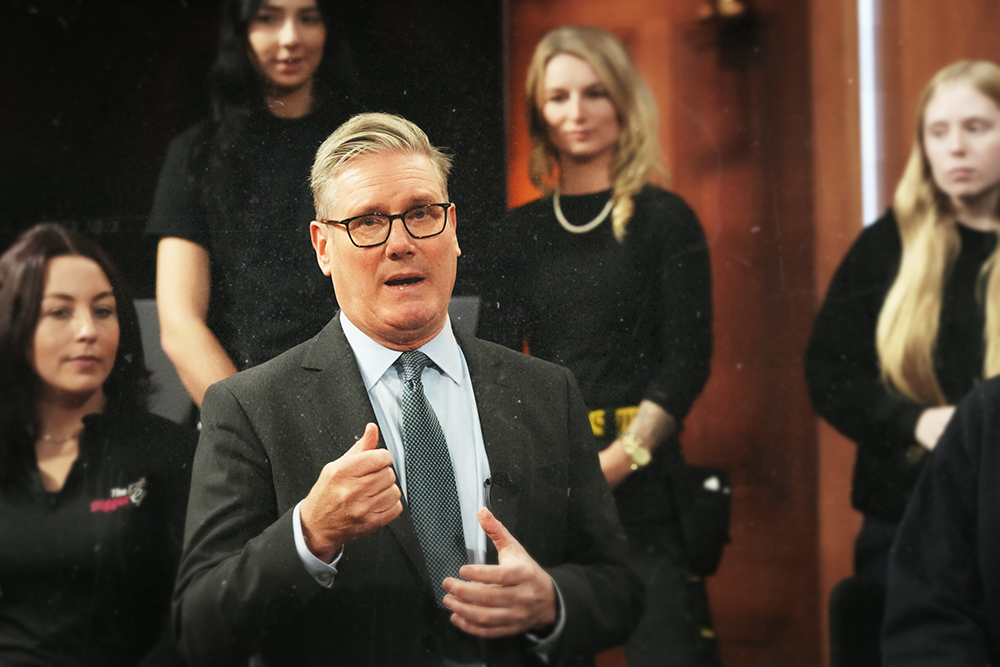When Winston Churchill told Franklin D. Roosevelt and Joseph Stalin at Tehran that history would treat them kindly, he spoke with the certainty of a man who would write that history. Churchill’s The Second World War has not only shaped our view of that war, but also of Britain’s place in the world that followed it. From Anglo-American relations, through to the role Britain ought to play as Greeks in the new Roman empire, Churchill set the tone for successive British prime ministers. It is only now, 80 years after VE Day and with the dawning of the age of Trump, that some aspects of his account are coming to be questioned.
Churchill waxed lyrical about the ‘special relationship’ in his memoirs, setting a pattern followed by many of his successors. Harold Macmillan described Britain as playing the role of the Greeks in the new American imperium, a flattering description which allowed him, and others such as Margaret Thatcher and Tony Blair, to strut on the world stage in a manner which Britain’s actual status would not otherwise have allowed.
It is true that, once the war had started, Churchill saw it as a way of protecting the British Empire
The reality of the relationship between Britain and America was closer to the view taken by Trump, if he was the only American president undiplomatic enough to say that Britain was a convenient partner if it did as it was told. Lend-lease of military aid in 1940 was portrayed by Churchill as a generous American lifeline, when, as his own memoranda at the time show, it was nothing of the kind. In return for some clapped-out American destroyers, the British were forced into a fire-sale of their assets in South America, and the liquidation of much of their gold reserves. It was not Churchill’s wooing of America that brought the country into the war, but rather Hitler’s decision to declare war after Pearl Harbor in December 1941. The pattern set then remained the same, if veiled by the myth of the special relationship: Britain did as she was told.
Churchill’s legend bulked as large in the US as it did in the UK. America is home to the biggest memorial to him, at Westminster College in Fulton, Missouri, where he gave the famous ‘Iron Curtain’ speech in 1946. The war-damaged Wren church of St Mary Aldermanbury was reassembled there as a memorial to the event. Unlike Roosevelt, who remained a divisive figure in American politics, Churchill (with his American mother) was a figure around whom both Republicans and Democrats could unite.
But in the alternative Trumpian manosphere, Churchill has been recast as the ‘chief villain of the second world war’. The influential Tucker Carlson has given a platform to the podcaster Darryl Cooper, who has peddled this view, alleging that Churchill had wanted the war in order to protect the British Empire, and that it was only thanks to him that what started off as an invasion of Poland became the second world war. This is a strange inversion of the truth, and conveniently – and perhaps significantly – ignores the part played by Russia in the origins of the conflict.
It is true that, once the war had started, Churchill saw it as a way of protecting the British Empire, but his warnings about the dangers of appeasing Hitler give the lie to any charge that he wanted a war. The strongest criticism that can legitimately be levelled against Churchill’s alternative to appeasement is that it was unrealistic. Roosevelt’s America was staunchly isolationist in the late 1930s, and the Soviet Union was regarded as a danger by its closest neighbours such as Poland and Finland.
Given Carlson and Trump’s views on the origins of the Russian-Ukrainian war, it is significant that they, like Putin, ignore the Nazi-Soviet pact of 1939. It was this which not only allowed Hitler to divide Poland with the Soviet Union, but also gave him the security he needed to launch his blitzkrieg on the western front in 1940.
As we celebrate the 80th anniversary of VE Day, we have Trump proclaiming that it was America that played the most important part in securing victory against Germany, and Putin stressing the sacrifices that Russia made. There are important elements of truth in both accounts: without American military aid, neither Britain nor the Soviet Union could have hoped to prevail; and without the millions of Russian lives lost in the campaign in the east, Germany could not have been defeated. But it remains a fact that it was Britain and France alone who entered the war without being attacked by any of the Axis powers, just as it remains a fact that thanks to Stalin’s pact with Hitler, the latter was defeated and the former survived. This was thanks to Hitler’s inability to mount an invasion on the USSR after his defeat in the Battle of Britain.
This was not the version of events Churchill gave. But as we celebrate the courage and sacrifices made by the British people between 1939 and 1945, it is another aspect of the war – also ignored by Churchill – which we might want to emphasise. The promise of his predecessor David Lloyd George that Britain would be a land fit for heroes after the Great War was just one of many such pledges which failed to materialise in the post-war decades.
During the second world war, Churchill took the view that post-war planning was something to think about after the conflict was over. When Eden tried to interest him in what the post-war settlement of Europe might look like, Churchill impatiently told him to catch the bear before skinning it. The folly of such myopia was shown at Yalta in 1945; Poland will not be celebrating VE Day any more than any of the countries which fell under Soviet domination. But on the Home Front it was different.
Churchill could not understand why the promising young Conservative R.A. Butler preferred to become Minister of Education rather than Minister of War. The 1944 Act which bore his name and established a new framework for education in England and Wales, making secondary education free and compulsory for all, had a greater influence on the future of Britain, however, than anything Butler could have done at the War Office. The Beveridge report of 1942, sponsored by the Labour deputy prime minister Clement Attlee and his Labour colleagues Herbert Morrison and Ernest Bevin, laid the foundations for what Archbishop William Temple called ‘the welfare state’. None of this gets much attention from Churchill, who took no interest in any of it at the time.
What was called ‘Attlee’s consensus’ was in fact the product of radical thinking in both major parties, so much so that it is said that when Churchill was presented with the Conservative manifesto for the 1950 election, he is supposed to have mistaken it for its Labour counterpart. 80 years after VE Day, and nearly 50 after the end of that consensus, as Britain faces a world looking troublingly like that of the later 1930s, it might be fitting to highlight that cross-party spirit which sought to find solutions to the problems facing a country which was losing an empire, but had not yet found a role.






Comments